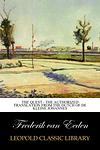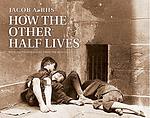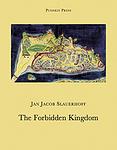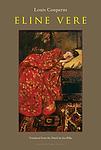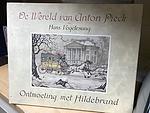The Greatest Dutch, Danish Books of All Time
Click to learn how this list is calculated.
This list represents a comprehensive and trusted collection of the greatest books. Developed through a specialized algorithm, it brings together 300 'best of' book lists to form a definitive guide to the world's most acclaimed books. For those interested in how these books are chosen, additional details can be found on the rankings page.
Genres
Countries
Date Range
Reading Statistics
Click the button below to see how many of these books you've read!
Download
If you're interested in downloading this list as a CSV file for use in a spreadsheet application, you can easily do so by clicking the button below. Please note that to ensure a manageable file size and faster download, the CSV will include details for only the first 500 books.
Download-
1. The Diary of a Young Girl by Anne Frank
This book is a real-life account of a young Jewish girl hiding from the Nazis during World War II, written in diary format. The girl and her family are forced to live in a secret annex in Amsterdam for two years, during which she writes about her experiences, fears, dreams, and the onset of adolescence. The diary provides a poignant and deeply personal insight into the horrors of the Holocaust, making it a powerful testament to the human spirit.
-
2. Fairy Tales and Stories by Hans Christian Andersen
This collection of stories offers a mix of enchanting fairy tales and narratives, many of which have become universally recognized classics. The stories range from tales of whimsical creatures and magical realms to poignant narratives that explore themes of love, sacrifice, and the human condition. Some tales are light-hearted and humorous, while others are profound and thought-provoking, demonstrating the breadth and depth of the author's storytelling abilities.
-
3. Out of Africa by Isak Dinesen
The book is a memoir that recounts the author's experiences and observations living in Kenya, then British East Africa, from 1914 to 1931. It is a lyrical meditation on her life amongst the diverse cultures and wildlife of Africa. The author shares her trials and tribulations of running a coffee plantation, her deep respect for the people and land of Africa, and her intimate understanding of the subtle nuances of African culture and society.
-
4. The Praise of Folly by Erasmus
This satirical work is a critique of the practices of the Church and the wider social behavior of the time. Narrated by Folly, the female personification of foolishness, the book humorously criticizes various aspects of society such as superstitious religious practices, scholarly pedantry, and the excesses of the upper classes. The book is a bold critique of its time, using humor and irony to expose the follies of its society.
-
5. The Waning of the Middle Ages by Johan Huizinga
"The Waning of the Middle Ages" is a historical analysis of the cultural life of the late Middle Ages, particularly in France and the Low Countries, during the 14th and 15th centuries. It delves into the period's modes of thought, forms of expression, religious beliefs, and social norms. The book argues that the era was characterized by a highly stylized and overwrought civilization, marked by an excessive emphasis on chivalry and courtly love, a religious mindset dominated by the fear of death and the afterlife, and a cultural milieu that was both highly imaginative and deeply pessimistic.
-
6. Ethics by Baruch de Spinoza
"Ethics" is a philosophical work that explores complex ideas about God, the universe, human emotions, and the path to enlightenment. The book outlines a metaphysical, epistemological, and ethical system in which God and the universe are one and the same, rejecting traditional notions of a personal deity and asserting that understanding the natural world leads to peace of mind and happiness. The work delves into the nature of the human mind and its emotions, advocating for the pursuit of reason and knowledge to achieve a calm, enlightened state.
-
7. Smilla's Sense of Snow: A Novel by Peter Høeg
The novel revolves around Smilla Jaspersen, a woman of Greenlandic-Inuit and Danish descent living in Copenhagen, who investigates the mysterious death of a small Inuit boy who falls from the roof of their apartment building. Despite the authorities ruling it as an accident, Smilla's understanding of the Arctic snow and ice, her intuition, and her relentless pursuit for truth lead her to uncover a much darker, dangerous conspiracy involving powerful corporations and government agencies.
-
8. The Discovery of Heaven by Harry Mulisch
"The Discovery of Heaven" is a philosophical novel that explores the relationship between mankind and the divine. The story revolves around two friends, an astronomer and a philologist, who are manipulated by heavenly forces to father a child who is destined to return the Ten Commandments to God. As the narrative unfolds, it delves into complex themes such as friendship, love, art, science, and the existence of God, presenting a thought-provoking analysis of the human condition.
-
9. Fear and Trembling by Soren Kierkegaard
"Fear and Trembling" is a philosophical work that explores the concept of faith, drawing upon the biblical story of Abraham and his willingness to sacrifice his son Isaac. The author uses this story to delve into the paradox of faith, arguing that true faith requires a willingness to make personal sacrifices that may seem absurd or irrational to others. The book challenges conventional notions of morality and ethics, suggesting that faith may sometimes require actions that go beyond the bounds of societal norms.
-
10. The Quest by Frederik van Eeden
"The Quest" is a philosophical novel that delves into the journey of a man in search of truth and purpose in life. The protagonist, disillusioned with the materialistic society around him, embarks on a spiritual quest for enlightenment. His journey takes him through various experiences and encounters with different belief systems and philosophies, challenging his existing notions and beliefs. The book explores themes of existentialism, spirituality, and the human struggle for meaning.
-
11. Either Or by Soren Kierkegaard
"Either Or" is a philosophical work that explores the concept of existentialism through the lens of two contrasting life views: the aesthetic and the ethical. The aesthetic life is characterized by immediate pleasure and enjoyment, while the ethical life is defined by moral duty and responsibility. The book presents these two perspectives through the fictional letters of two characters, ultimately arguing for the superiority of the ethical life. However, it also suggests that a truly fulfilled life must find a balance between the two.
-
12. Niels Lyhne by Jens Peter Jacobson
The novel is a coming-of-age story that follows the intellectual and emotional development of its eponymous protagonist, a young Danish poet who struggles with the existential dilemmas of his time. Throughout his life, he grapples with the loss of religious faith, the search for meaning in a secular world, and the pursuit of artistic truth, all while experiencing the pangs of unrequited love and personal tragedy. The protagonist's journey is one of self-discovery and disillusionment, as he seeks to reconcile his idealistic visions with the harsh realities of life, ultimately embodying the spirit of a modern, introspective individual facing the existential uncertainties of the 19th century.
-
13. Seven Gothic Tales by Isak Dinesen
"Seven Gothic Tales" is a collection of short stories set in the 19th century, each with a unique blend of humor, horror, and romanticism. The tales, steeped in supernatural elements and psychological depth, explore themes of love, betrayal, and identity. The stories are populated by a variety of characters from different social classes and backgrounds, each facing their own moral dilemmas and existential crises. The author's vivid descriptions and atmospheric settings contribute to the gothic tone of the book.
-
14. Lucky Per by Henrik Pontoppidan
The novel follows the life of Per Sidenius, a young man from a devoutly religious family, who rebels against his provincial upbringing to seek fortune and success as an engineer in the bustling world of Copenhagen. Ambitious and driven, Per dreams of freeing Denmark from its reliance on foreign energy through his innovative engineering projects. Throughout his journey, he confronts the rigid class structures of Danish society, engages in tumultuous relationships, and struggles with his own internal conflicts and existential doubts. Despite his initial rapid ascent, Per ultimately faces the consequences of his relentless pursuit of material success, leading him to reevaluate the true meaning of fulfillment and happiness in life.
-
15. How the Other Half Lives by Jacob A. Riis
The book is a detailed examination of the living conditions of the poor in New York City in the late 19th century. It provides a vivid and often shocking account of life in the slums, tenements and sweatshops of the city, based on the author's own investigative journalism. The book had a significant impact on public opinion and led to changes in housing laws and social policy.
-
16. All Souls' Day by Cees Nooteboom
"All Souls' Day" is a novel about a Dutch documentary filmmaker, who, after losing his wife and daughter in a car accident, moves to Berlin to escape his grief. The protagonist becomes entangled in a series of romantic relationships while struggling to come to terms with his loss. The book blends narrative with philosophical musings on memory, loss, and the nature of time, using the city of Berlin as a backdrop to illustrate the protagonist's internal journey.
-
17. The Sickness Unto Death by Soren Kierkegaard
This philosophical work explores the concept of despair, which the author sees as a spiritual condition linked to the Christian concept of sin. The author delves into the human struggle to reconcile the self with the ideal self, a process he argues is only possible through a relationship with God. The book also discusses existential dread, self-awareness, and the nature of the human soul, offering a complex and thought-provoking examination of the human condition.
-
18. Anecdotes of Destiny by Isak Dinesen
"Anecdotes of Destiny" is a collection of five short stories, each with a unique exploration of human nature, destiny, and the complexities of life. The tales range from a woman who must choose between three suitors, to a young man who gambles his fortune on a single pearl, to a couple who make a pact with the devil. The stories are rich in symbolism and metaphoric language, offering profound insights into the human condition and the mysterious workings of fate.
-
19. Return to Oegstgeest by Jan Wolkers
"Return to Oegstgeest" is a semi-autobiographical narrative that explores the author's childhood and adolescence in the small Dutch town of Oegstgeest during the pre and post-World War II era. The book delves into the author's troubled relationship with his stern, religious parents, his struggles with faith, and his burgeoning artistic and sexual awakening. The narrative is a poignant exploration of memory, family, and the experiences that shape one's identity.
-
20. The Garden Where the Brass Band Played by Simon Vestdijk
This novel explores the life of a young boy named Nol Rieske, who falls in love with the daughter of a bandmaster in a small Dutch town. As he grows older, he becomes a successful musician, but his obsession with the bandmaster's daughter, who is mentally ill, continues to dominate his life. The story is a detailed exploration of a man's lifelong infatuation and its profound impact on his personal and professional life.
-
21. The Forbidden Kingdom by Jan Jacob Slauerhoff
"The Forbidden Kingdom" is a historical fiction novel that intertwines the stories of two men, a 20th century sailor and 16th century Portuguese poet, Luis Camões. The narrative alternates between the two, exploring the sailor's obsession with the poet's life and the poet's experiences in the East, including his journey to Macao. The book delves into themes of identity, obsession, and the clash of Eastern and Western cultures.
-
22. Eline Vere by Louis Couperus
"Eline Vere" is a classic novel that explores the life of a young, neurotic woman from the Hague, who is trapped in the restrictive high society of late 19th-century Holland. The protagonist, Eline Vere, is an enchanting but unstable young woman who self-destructs through her irrational fears and fantasies. The novel vividly depicts the social and cultural milieu of the time and is also a psychological study of a woman whose life spirals out of control.
-
23. Forever a Stranger by Hella S. Haasse
"Forever a Stranger" is a historical novel set in the 19th-century Dutch East Indies, now known as Indonesia. It tells the story of Rudolf, a half-Dutch, half-Javanese boy, who is raised by his Dutch father after his Javanese mother's death. Throughout his life, Rudolf grapples with his mixed heritage and struggles to find a sense of belonging, experiencing the harsh realities of colonialism and the cultural divide between the Dutch and the Javanese. The narrative provides a critical examination of colonialism and its impact on identity, culture, and society.
-
24. Max Havelaar by Multatuli
"Max Havelaar" is a novel centered around a Dutch civil servant who is stationed in the Dutch East Indies (now Indonesia) during the mid-19th century. The protagonist, trying to battle the corruption and exploitation of the local people by Dutch colonial rulers, becomes disillusioned with the system. The novel provides a scathing critique of the colonial regime's treatment of the indigenous people, highlighting their suffering and exploitation. The author uses various narrative techniques and perspectives, making it a significant work in Dutch literature.
-
25. Camera Obscura by Nicolaas Beets
"Camera Obscura" is a collection of humorous and satirical sketches that provide a vivid picture of 19th-century Dutch society. It explores the social and domestic life of the middle classes, their habits, their social pretensions, their pleasures and their follies. The book also includes a series of character studies, often based on the author's acquaintances, which are presented in a light-hearted and often ironic tone.
Reading Statistics
Click the button below to see how many of these books you've read!
Download
If you're interested in downloading this list as a CSV file for use in a spreadsheet application, you can easily do so by clicking the button below. Please note that to ensure a manageable file size and faster download, the CSV will include details for only the first 500 books.
Download








